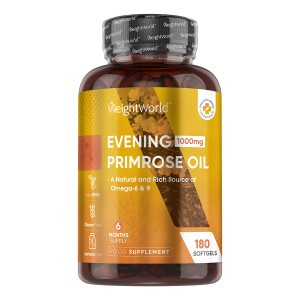
WeightWorld
10 Helpful Tips To Reduce Menopause Symptoms in Winter
10 Min. Read 11 Sep 2025
Did you know seasonal changes can have an impact on your hormones? While winter can be an exciting time of the year for many, these cold months also come with some unique challenges, especially for women going through menopause. The hormonal changes during menopause can make winter menopausal symptoms feel even worse. However, with a few lifestyle adjustments and a proactive approach, you can steer through this phase with ease.
In this article, we'll learn what menopause means, delve into the symptoms and provide you with a comprehensive guide on managing signs and symptoms of menopause during winter.
What Does Menopause Feel Like?
Menopause is a natural biological process that marks the end of a woman's reproductive years. Although the age at which it hits varies from one woman to another, typically it occurs during the late 40s or early 50s. Menopause is a gradual process that begins with perimenopause, during which the ovaries gradually start producing less estrogen and progesterone. While menopause or perimenopause is not an illness, these hormonal shifts bring along many physical and mental symptoms that women need help with. Before learning about the ways in which you can deal with such hormonal fluctuations, you need to be aware of the main symptoms of menopause.
What Are the Symptoms of Menopause?
Menopausal symptoms can vary from woman to woman, but here’s a list of menopause symptoms that are commonly experienced by women.
- Hot flashes and night sweats: Feeling of sudden, intense warmth accompanied by sweating and a flushed face
- Mood swings: Menopause can impact your mood adversely, leading to irritability, anxiety or depression
- Extreme fatigue: Sense of tiredness and lethargy throughout the day
- Sleep disturbances: Changes in hormone levels can disrupt normal sleep patterns, leading to insomnia or restless nights
- Weight gain: Hormonal imbalance, coupled with ageing, can contribute to uncontrolled weight gain
- Joint pain: Some women experience joint pain and stiffness as a sign of menopause discomfort.
- Changes in libido: Hormonal fluctuations may affect your sexual desire, impacting your sex life
Natural Ways to Reduce the Signs and Symptoms of Menopause
While menopause is unavoidable, there are natural ways to alleviate its symptoms. Here are some practical tips to help you manage the common symptoms of menopause, especially during the winter season:
1. Include Vitamin D and Calcium In Your Diet
Winter often means less exposure to sunlight, which can lead to vitamin D deficiency. Boost your intake of vitamin D and calcium by incorporating foods like dairy products, leafy greens, and fortified cereals into your diet. These nutrients are essential for maintaining bone health and can help alleviate joint pain, which is a sign of menopause.
2. Keep Your Weight In Check
Unwanted weight gain during menopause is common. However, maintaining a healthy weight can help manage various common symptoms of menopause. So, engage in regular exercise and incorporate a slimming diet to prevent unnecessary weight gain. Winter-friendly activities like indoor workouts, yoga or even a morning walk can not only help you slim down but also assist in lowering the impacts of menopause. As per a recent study, postmenopausal women who lost weight considerably could more easily alleviate the various signs of menopause such as hot flashes and night sweats.
3. Make Fruits and Vegetables Your Best Ally
Enhance your daily nutrition by incorporating an abundance of fruits and vegetables loaded with antioxidants and fibre. Fruits and vegetables not only help in weight loss by keeping you full but also provide essential nutrients to fortify your immune system and support overall health.Recent study have shown that women who rely on a diet rich in fruits and vegetables experience less bone loss, providing a defence against achy joints, which is a common symptom of menopause.
4. Stay Away From Trigger Foods
Certain foods and drinks can trigger hot flashes and worsen mood swings. Some examples of such trigger foods are coffee, spicy foods, sugary foods and alcohol. Keep a note of the foods that trigger the main symptoms of menopause and then limit the intake of those foods, especially during the winter months.
5. Choose Foods High in Phytoestrogens
Since your ovaries reduce or stop producing estrogen during menopause, it’s quintessential for you to have foods that are rich in Phytoestrogens. This a natural substance found in foods like soy products, flaxseeds and whole grains, that mimic the effects of the hormone, estrogen in the body. Including these foods in your diet may help alleviate some menopausal symptoms by providing a natural estrogen-like effect.
6. Stay Hydrated With Water
During menopause, the decrease in estrogen levels often causes dehydration. So it becomes even more critical during menopause to keep yourself hydrated by drinking plenty of water, approximately 8 to 12 glasses a day. Adequate water intake can help manage weight, reduce bloating, alleviate joint pain and keep hot flashes at bay. Spice up your water routine with herbal teas or infused water to stay warm and hydrated during the winter.
7. Avoid Skipping Meals
Irregular eating patterns can exacerbate mood swings and disturb your normal metabolic process, making it tougher for you to manage body weight. Eat your meals on time, incorporate balanced meals and provide your body with the energy it needs to function optimally and avoid the main symptoms of menopause.
8. Reduce Stress
In the list of menopause symptoms, stress or anxiety is a common one. Winter blues and menopause can create a perfect storm for stress, often leading to hot flashes and night sweats. Practice stress-reducing activities such as meditation, deep breathing exercises or relaxing yoga to keep your mind and body calm. reduce bloating have revealed that mindful meditation has a positive impact on reducing stress. .
9. Say No To Social Isolation
It’s very common during perimenopause and menopause phases to feel low emotionally and want to socialise less. To counter this effect, you must socialise more. If you don’t feel like being all chirpy and interacting with the world, then start by mingling and gossiping with your close friends and family. The more you socialise and spend quality time with your near and dear ones, the less likely you will be prone to emotional menopausal symptoms like mood swings and depressive thoughts.
10. Stock up on Supplements
While nutritious foods and physical activities mentioned above can help you manage the common symptoms of menopause, sometimes these might not be enough. Natural supplements such as calcium, vitamin D, cranberry extract and evening primrose oil can play a key role in managing the unwanted symptoms from within. So, consult with your doctor and consider taking the right supplements that can support your menopausal health.
The Final Takeaway
Now that you have learnt how women can easily deal with the main symptoms of menopause, you can easily infer that navigating through menopause during winter doesn't have to be a daunting task. By incorporating these lifestyle changes and following the tips outlined above, you can manage your symptoms effectively and focus on enjoying the beauty of the winter season. Remember, every woman's menopausal journey is unique, so it's important to listen to your body and make adjustments accordingly to suit your individual needs. So, this winter, stay warm, stay active and conquer the struggles of menopause with confidence and comfort.

Next
In recent years, the vegan lifestyle has gained significant popularity, with more people recognising the array of health benefits it offers and accepting the need to protect animals for the well-being of our planet. But till now many people are...
Most Viewed Articles












